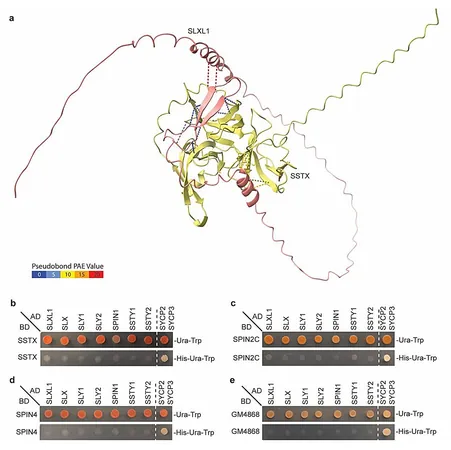
How AI Could Revolutionize Prostate Cancer Prognosis: A Breakthrough in MRI Tumor Sizing!
2024-10-29
Author: Siti
Introduction
Prostate cancer has emerged as the second most prevalent form of cancer among men, leading to nearly 300,000 new diagnoses annually in the United States alone. As the medical community grapples with improving treatment strategies, researchers at Mass General Brigham have forged a groundbreaking path by harnessing the power of artificial intelligence (AI) to refine tumor sizing based on MRI scans.
The Study and AI Model
In an innovative study, the researchers developed and validated an AI model using MRI images from over 700 prostate cancer patients. Impressively, this AI tool could accurately identify and delineate the edges of approximately 85% of the most aggressive prostate lesions, highlighting its potential utility in clinical practice. What sets this research apart is its correlation between larger tumor volume, as determined by AI, and an elevated risk of treatment failure and metastasis—factors traditionally not addressed together.
Implications of AI in Prognosis
The implications of this research are profound: the AI model has shown greater predictive power for metastasis following radiation therapy than conventional risk assessment methods. First author Dr. David D. Yang of Brigham and Women’s Hospital emphasized that this AI-based determination of tumor volume could significantly advance precision medicine. By providing insight into the aggressiveness of a patient's cancer, clinicians would be empowered to tailor the most effective treatment plans.
Addressing Variability in Diagnoses
MRI technology has already transformed how clinicians diagnose prostate cancer. However, the subjective nature of current human analysis can lead to inconsistencies in estimating tumor sizes. To combat this variability, the AI model underwent rigorous training utilizing MRI images from 732 cancer patients, aiming to establish a reliable method of tumor evaluation.
Clinical Relevance of AI Model
The researchers also focused on the clinical significance of the AI model. They discovered that it proficiently identified tumors associated with a PI-RADS score of 5, categorized by an exceptionally high risk of clinically significant prostate cancer. More remarkably, it positioned itself as a prognostic marker, where larger tumor volumes indicated higher chances for recurrence and metastasis, as evidenced by elevated prostate-specific antigen (PSA) levels, regardless of whether the patients underwent surgical intervention or radiation.
Expert Insights
Senior author Dr. Martin King elaborated, 'The AI measurement can reveal critical insights into patient outcomes, providing patients with a clearer picture of their potential for cure and the risk of future cancer spread.'
Streamlining Treatment Processes
Furthermore, the AI model offers the prospect of guiding radiation oncologists in accurately pinpointing the tumor's focal areas, enabling more targeted and effective treatments. Not only is this process streamlined, but it also significantly reduces the turnaround time for prognosis from weeks to mere days—allowing patients to embark on their treatment journeys much sooner.
Future Directions
As Mass General Brigham continues to emphasize research as a core foundation of their care strategy, the goal remains clear: to enhance patient outcomes through innovation and community engagement. The researchers are looking toward the future, planning to validate their findings across diverse patient groups and multi-institutional datasets to ensure the model’s applicability to a broader array of prostate cancer patients.
Conclusion
This revolutionary development in AI-driven tumor sizing could be the key to transforming prostate cancer treatment, paving the way toward personalized medicine and improved prognostic capabilities. Stay tuned as this story unfolds, potentially marking a significant leap forward in the fight against prostate cancer!





 Brasil (PT)
Brasil (PT)
 Canada (EN)
Canada (EN)
 Chile (ES)
Chile (ES)
 Česko (CS)
Česko (CS)
 대한민국 (KO)
대한민국 (KO)
 España (ES)
España (ES)
 France (FR)
France (FR)
 Hong Kong (EN)
Hong Kong (EN)
 Italia (IT)
Italia (IT)
 日本 (JA)
日本 (JA)
 Magyarország (HU)
Magyarország (HU)
 Norge (NO)
Norge (NO)
 Polska (PL)
Polska (PL)
 Schweiz (DE)
Schweiz (DE)
 Singapore (EN)
Singapore (EN)
 Sverige (SV)
Sverige (SV)
 Suomi (FI)
Suomi (FI)
 Türkiye (TR)
Türkiye (TR)
 الإمارات العربية المتحدة (AR)
الإمارات العربية المتحدة (AR)